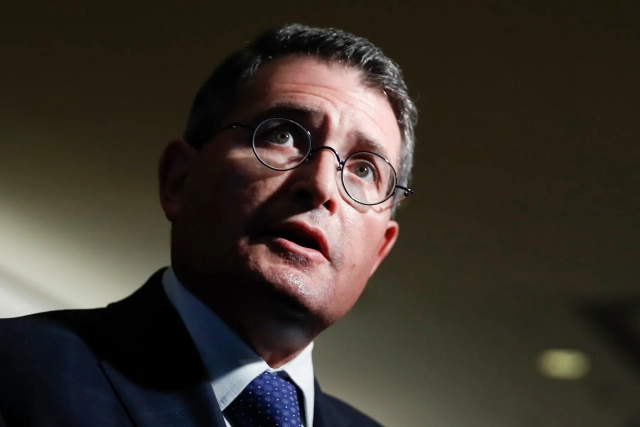Search
Items tagged with: Antonin
#Leonard #Leo was born on Long Island in the mid-sixties.
When he was only a toddler, he lost his father — a pastry chef — to cancer.
At the age of five, his mother remarried, and the Leos moved to New Jersey, where he attended Monroe Township High School.
Leo was chosen as the “Most Likely to Succeed”
a distinction he shared with classmate #Sally #Schroeder, his future wife.
In the yearbook, the two were shown sitting next to each other, holding wads of cash and with dollar signs painted on their glasses.
He was so effective at raising money for his senior prom that his classmates nicknamed him the “Moneybags Kid.”
Throughout his life, he remained steeped in the deep Catholicism of his grandfather, who had emigrated to the United States from Italy as a teenager;
his grandparents attended Mass daily, and encouraged the young Leonard to follow their lead.
After high school, Leo went to Cornell University, studying under a group of conservative academics in the university’s department of government
and with the wider national backdrop of iconoclastic scholars led by Yale University’s #Robert #Bork and the University of Chicago’s #Antonin #Scalia, who were building the case for a novel legal doctrine known as #originalism.
He got a series of internships in Washington, D.C., during the final years of the Reagan administration,
then returned to Cornell to join the law school, where in 1989 he founded the local chapter of a student organization called the #Federalist #Society.
That group had been set up by three conservative-leaning students from Yale, Harvard, and Chicago seven years earlier as a way of challenging what they saw as the dominance of liberal ideology at the country’s law schools.
After graduating, Leo married Sally, who had been raised as a Protestant but who used to go to Catholic Mass five times every weekend because she played the organ.
She decided to convert not long before her marriage.
The couple moved back to Washington, where Leo clerked for a judge on the court of appeals and became close with another appellate judge who had recently been appointed to the D.C. circuit
— a man from Georgia called #Clarence #Thomas,
who had toyed with becoming a Catholic priest.
Despite being ten years older and from much more humble origins,
Thomas shared Leo’s conservative outlook, and the two soon developed a deep friendship that would endure for many years.
During this period, Leo was asked by the Federalist Society to become its first employee
— although he delayed his start date so that he could help his good friend Thomas through his contentious confirmation process for the Supreme Court.
Despite accusations of sexual harassment hanging over him, Thomas won Senate confirmation by a slim margin.
It would be the first in a series of fights in which Leo would have to put aside the teachings of his Christian faith as he focused on the greater goal of pushing through a conservative revolution of the courts and of society at large.
rollingstone.com/politics/poli…

Opus Dei and the Moneybags Kid, Leonard Leo
In his new book OPUS, Gareth Gore examines the ties binding Supreme Court puppetmaster Leonard Leo and a radical, powerful Catholic organization.Gareth Gore (Rolling Stone)
